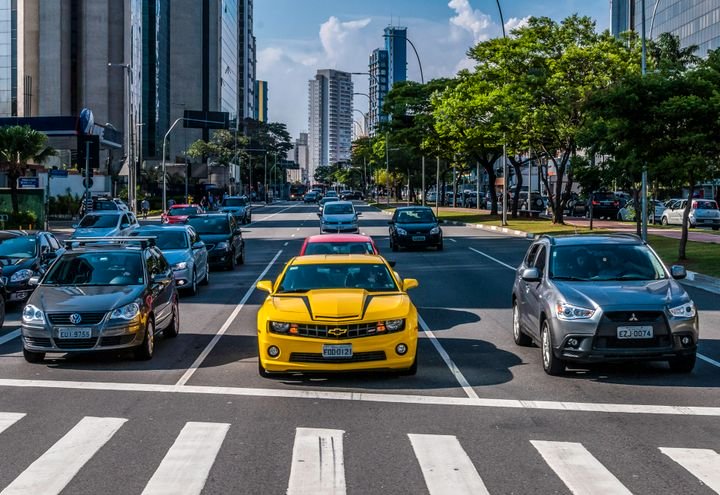The association attributes this growth in daily rates to the increase in demand from people renting vehicles for longer periods (instead of buying them) and the growing number of rentals for drivers of transportation companies. Photo via GoodFreePhotos. ABLA, the Brazilian car rental association, has conducted a census on Brazil’s car rental industry and found… Continue reading Brazilian Car Rental Industry Sees Growth in Daily Rental Rates
Tag: Renault
Nissan resumes vehicle production in China’s virus-hit Hubei – The Mainichi
This Feb. 15, 2019 file photo shows the logo of Nissan Motor Co. in Yokohama, near Tokyo. (Kyodo) BEIJING (Kyodo) — Nissan Motor Co. said Friday it has resumed vehicle manufacturing after a one-and-a-half-month hiatus in the central Chinese province of Hubei, which has been hit hard by the rapidly spreading new coronavirus. With the… Continue reading Nissan resumes vehicle production in China’s virus-hit Hubei – The Mainichi
Rivian shuts down all facilities over COVID-19 pandemic concerns
Rivian, the buzzy electric vehicle startup that is backed by Amazon and Ford, is shutting down all of its facilities due to the spread of COVID-19, the disease caused by coronavirus. Rivian employs more than 2,000 workers across several locations, including its headquarters in Plymouth, Mich., a factory in Normal, Ill. as well as operations… Continue reading Rivian shuts down all facilities over COVID-19 pandemic concerns
Press Releases – Coronavirus: EU auto industry faces unprecedented crisis
Brussels, 20 March 2020 – The effect of the coronavirus on society and the global economy is unprecedented, with grave consequences for the automobile industry. Indeed, most of the members of the European Automobile Manufacturers’ Association (ACEA) have already announced temporary closures of plants due to collapsing demand, supply shortages, and government measures, and are… Continue reading Press Releases – Coronavirus: EU auto industry faces unprecedented crisis
GROUPE RENAULT: Communiqué of availability of the Universal Registration Document and information regarding the impact of coronavirus
COMMUNIQUÉBoulogne-Billancourt, March 20, 2020Renault announces that the 2019 Universal Registration Document is filed with the French Financial Markets Authority.The 2019 Universal Registration Document includes the following information:In the context of the coronavirus (Covid-19) pandemic and in compliance with the measures taken by the various governments to date, Groupe Renault has stopped the activity of some… Continue reading GROUPE RENAULT: Communiqué of availability of the Universal Registration Document and information regarding the impact of coronavirus
[Covid-19] The Walor group closes two factories in the Ardennes
Faced with a significant drop in its production volume due to the coronavirus epidemic which affected several of its principals (PSA, Renault, Volvo, John Deere) and several other automotive suppliers, heavy goods vehicles , agricultural machinery and construction, the Walor group was forced to close its two factories in the Ardennes at Bogny-sur-Meuse (210 employees… Continue reading [Covid-19] The Walor group closes two factories in the Ardennes
Nissan Z trademark filing hints at 370Z successor
Nissan has filed a new Z trademark, giving the strongest hint yet that it’s readying a replacement for the 370Z sports car. This trademark was filed by Nissan just days ago with the Government of Canada, as first reported by Motor Trend, and shows the Japanese company is committed to its long-standing sports car. Talking to Autocar… Continue reading Nissan Z trademark filing hints at 370Z successor
Tesla shuts down California and New York factories, keeps Nevada open during coronavirus crisis
Tesla will suspend most operations at its Fremont, Calif., and Buffalo, N.Y, factories at the end of the workday on Monday to bring itself in line with local measures to prevent the spread of the coronavirus, the company has confirmed in a press release.The automaker will continue vehicle deliveries and service as possible, and both its charging network and battery factory in Sparks, Nev., will remain open, as the local sheriff has deemed the facility an “essential” business.Ford, General Motors, Chrysler, Honda and Nissan have temporarily suspended operations at all of their U.S. factories.
Nissan’s UK factory closed until further notice over coronavirus
LONDON, March 20 (Reuters) – Nissan said on Friday its British car factory would remain closed until further notice over the coronavirus outbreak, having previously said it would be shut until the end of the week.
Coronavirus: Jaguar Land Rover to suspend production
Jaguar Land Rover is to suspend all production at its plants across the UK, in response to the spread of coronavirus. The firm said manufacturing would stop next week. It plans to resume on 20 April, but said this could change. Its decision is part of the company’s plan to “safeguard its business continuity”. The… Continue reading Coronavirus: Jaguar Land Rover to suspend production


